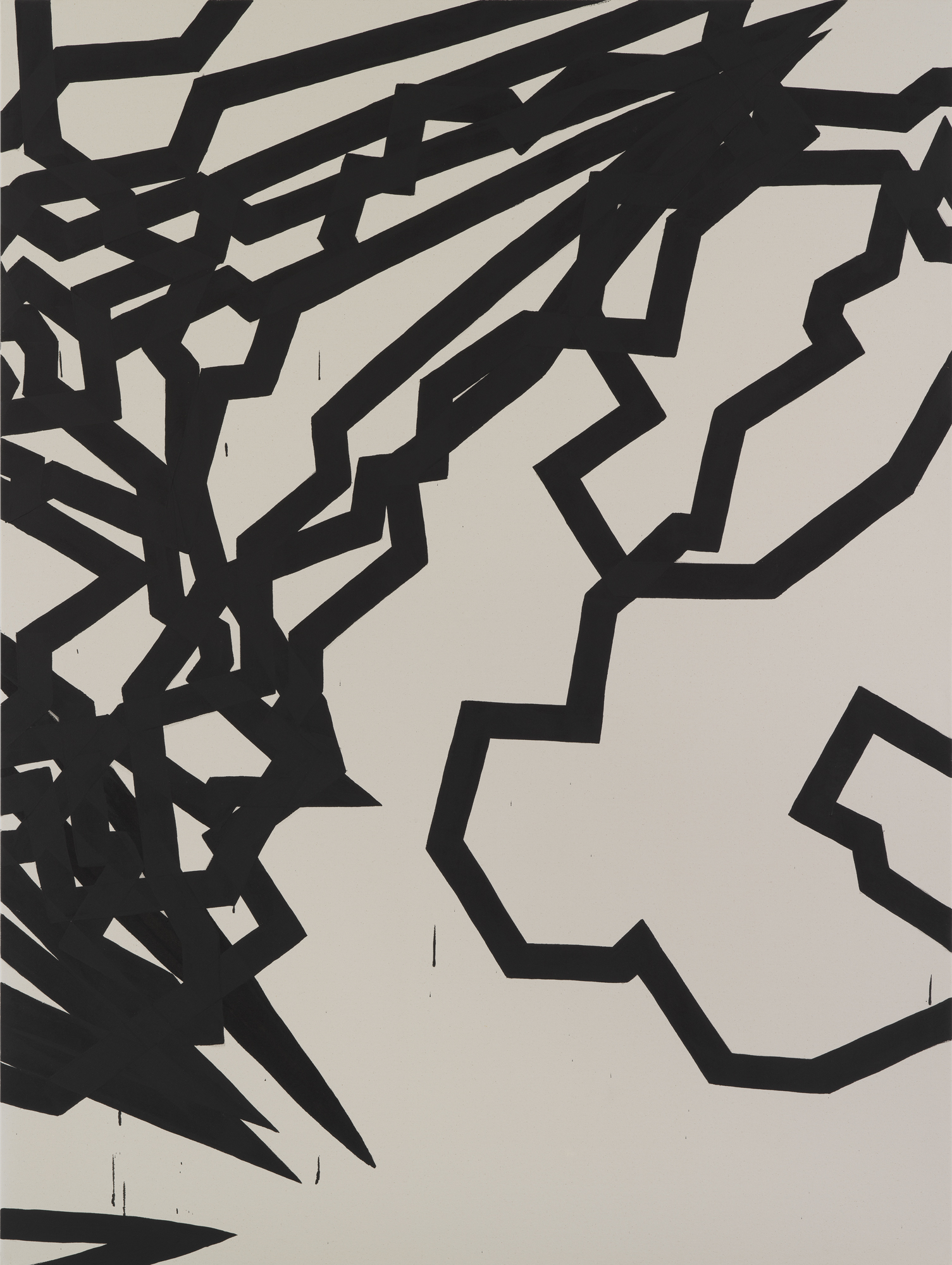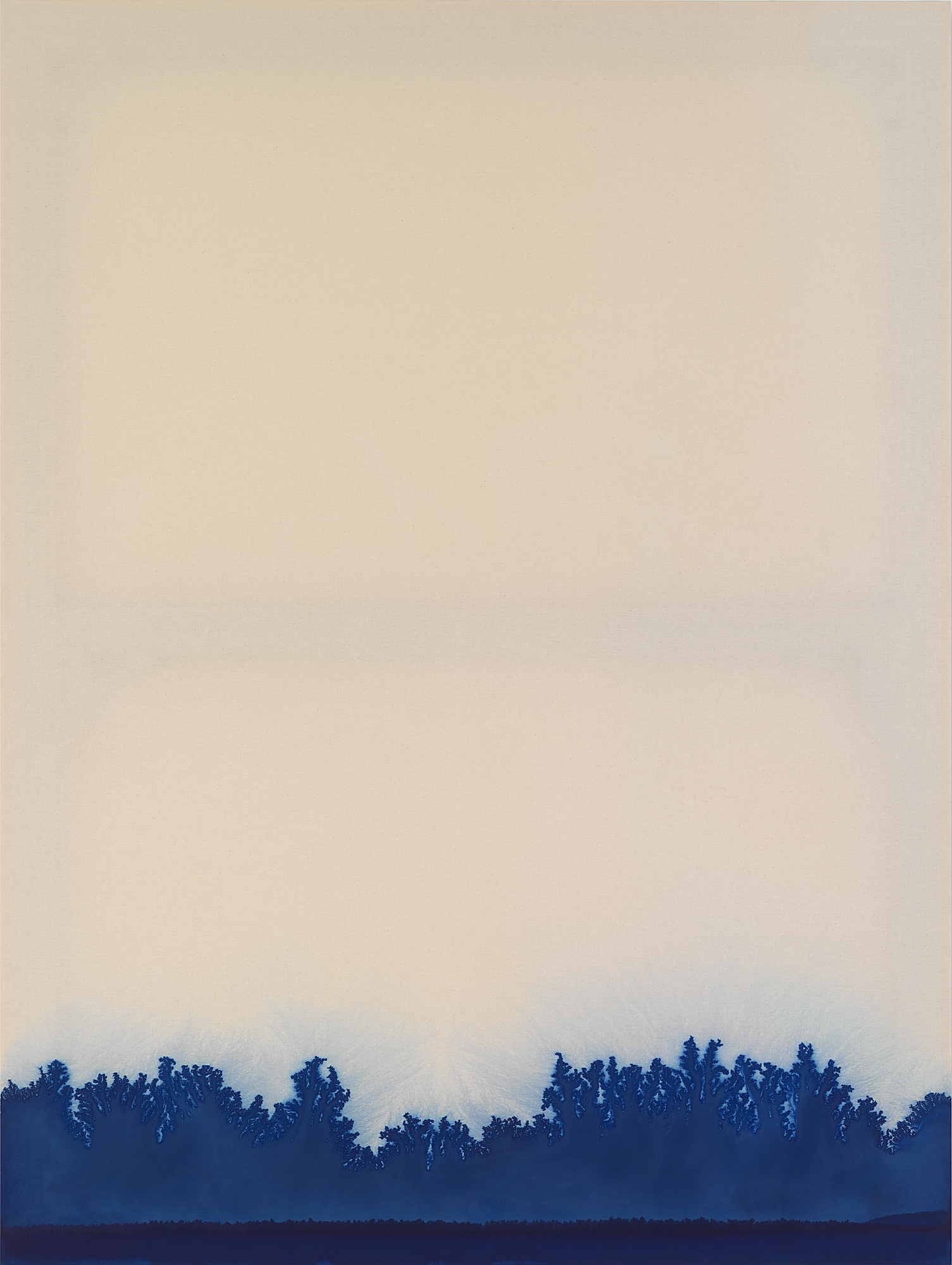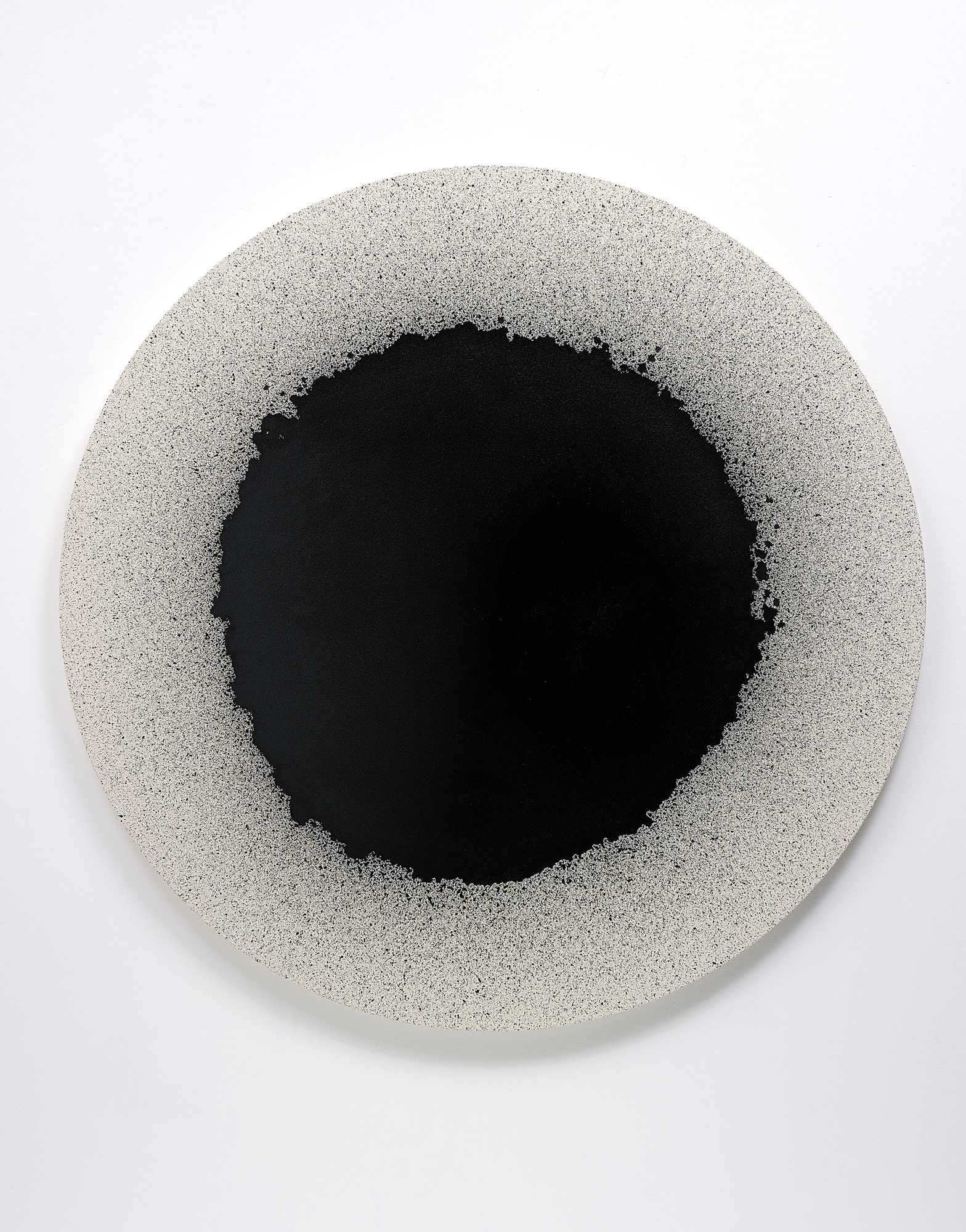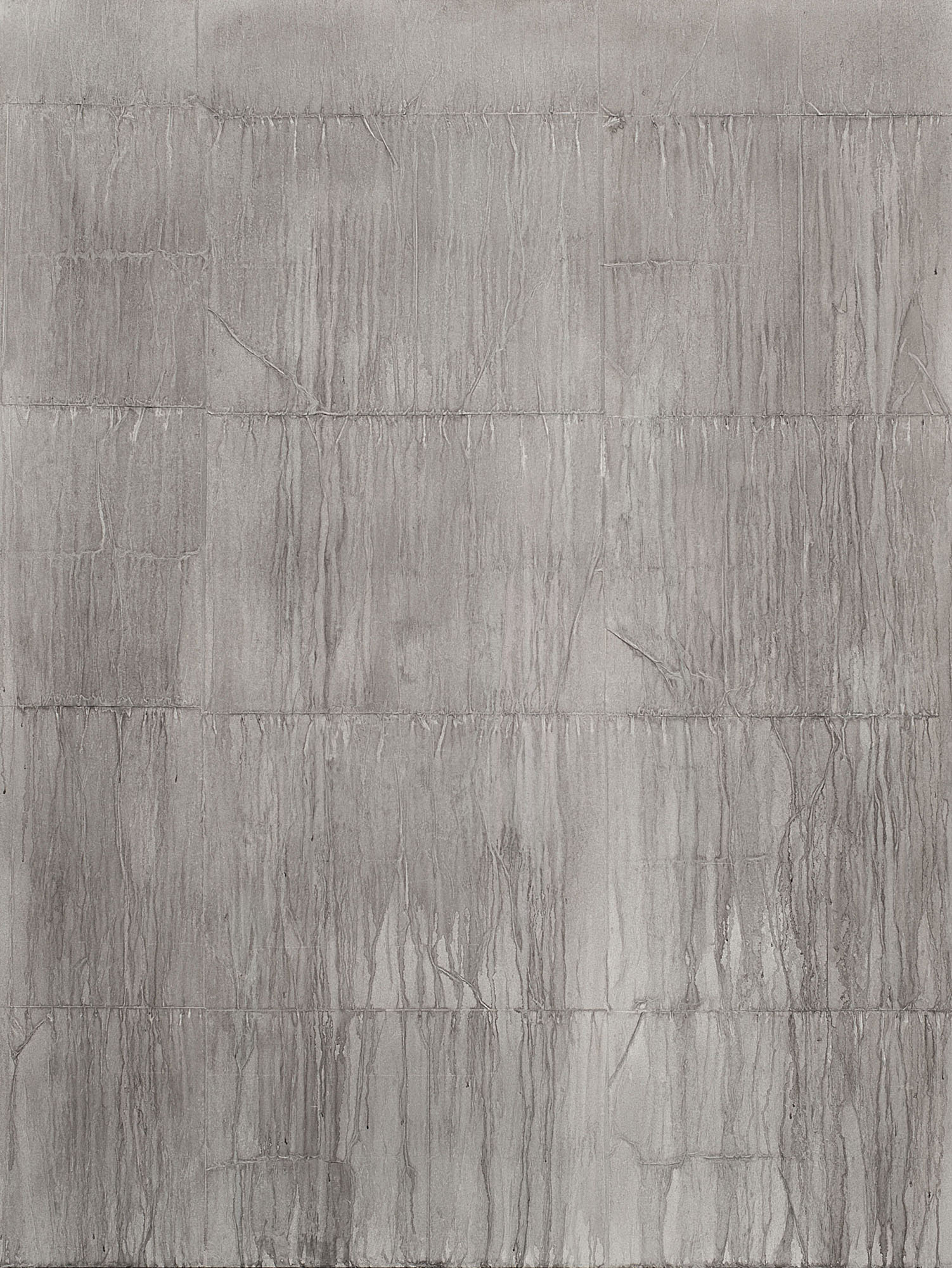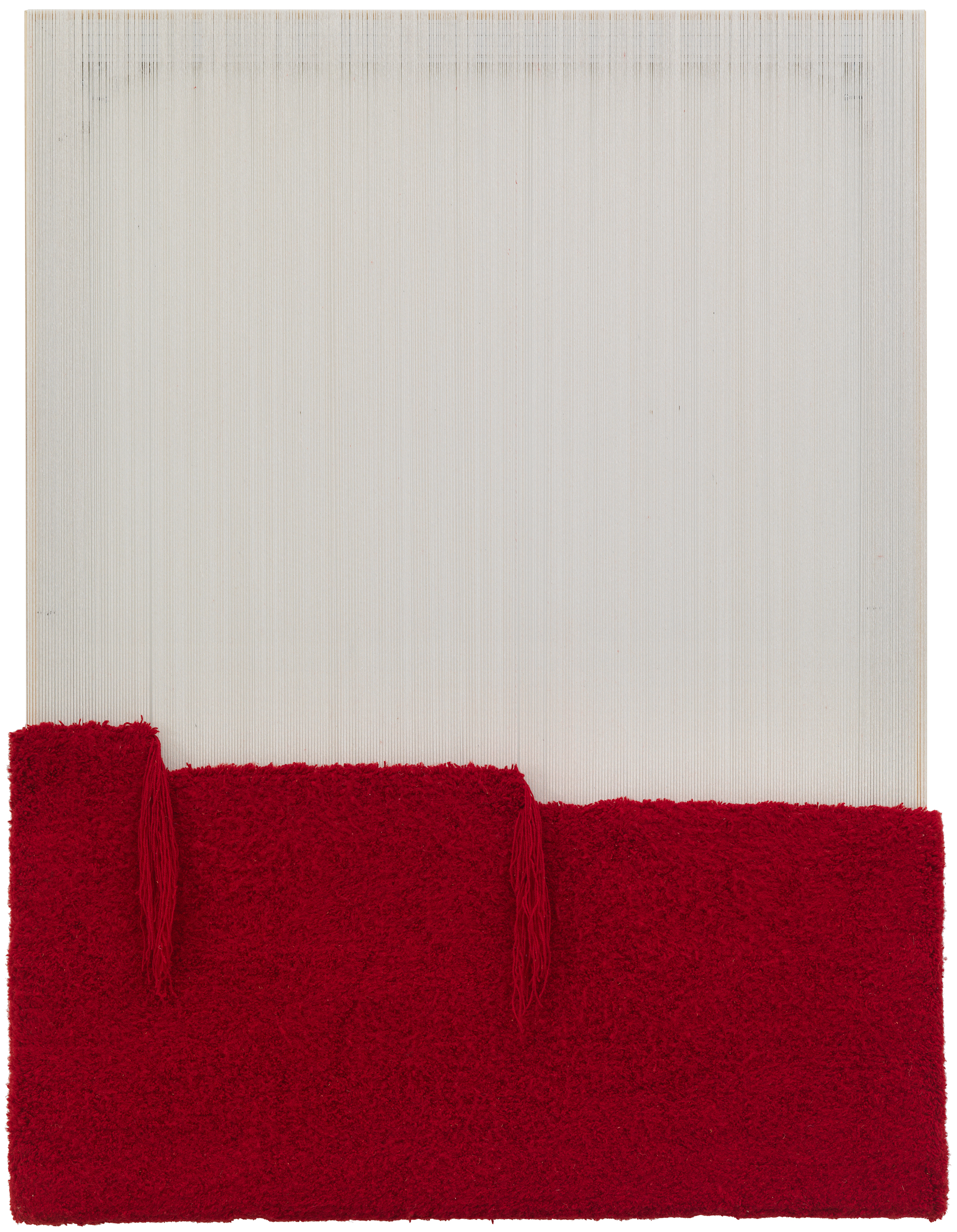Trained in Paris and Lyon, the visual artist Latifa Echakhch was quickly invited to show her work in a number of prestigious venues (Tate Modern, Fridericianum in Kassel, the Museum of Contemporary Art in Barcelona). More recently, her participation in Art Basel Unlimited in 2010 and the Venice Biennial in 2011, along with her winning the Marcel Duchamp Prize in 2013, has meant a growing success for her on the international art scene. She lives and works in Fully, Switzerland.
Inspired as much by her personal heritage as by collective history, she has been developing an abstract vocabulary which is powerful and delicate, employing rather modest materials (bricks, stones, stencils), and taking ordinary familiar objects (bits of sugar, tea glasses, cards, carpet fragments, hats) and shifting them away from their usual function. Removed from their normal reality, they are arranged in subtle installations that are like suspended moments imagined in close connection with the specificity of the venue where the artist intervenes and whose potential and constraints she loves to exploit.
Both poetic and aesthetic, her “personal landscapes” are the result of a complex, thought-out process. Echakhch aims to appeal to the viewer’s personal experience, while giving free rein to her own imagination. Between Minimalism, Surrealism and Conceptualism, her works look to represent the immaterial, embody absence – through articles of clothing lying on the floor as if abandoned there, for example – welcome chance, and finally suspend time by capturing not the instant of action but that instant that comes just after and still conserves the memory of it. The void is a player in its own right in the artist’s installations and thus assumes an almost mystical, palpable presence, rendering her “still lifes” deeply lived in, even though they are stripped down to the essential.
By means of a vocabulary that displays a rare breadth, both intellectual and intuitive, the artist in her way evokes with utmost restraint the political, sociological, ideological and identity issues of our era, yet never slips into a moralising discourse. She questions more than she judges, raising the human condition and thought to a higher, lyrical dimension.
Inspired as much by her personal heritage as by collective history, she has been developing an abstract vocabulary which is powerful and delicate, employing rather modest materials (bricks, stones, stencils), and taking ordinary familiar objects (bits of sugar, tea glasses, cards, carpet fragments, hats) and shifting them away from their usual function. Removed from their normal reality, they are arranged in subtle installations that are like suspended moments imagined in close connection with the specificity of the venue where the artist intervenes and whose potential and constraints she loves to exploit.
Both poetic and aesthetic, her “personal landscapes” are the result of a complex, thought-out process. Echakhch aims to appeal to the viewer’s personal experience, while giving free rein to her own imagination. Between Minimalism, Surrealism and Conceptualism, her works look to represent the immaterial, embody absence – through articles of clothing lying on the floor as if abandoned there, for example – welcome chance, and finally suspend time by capturing not the instant of action but that instant that comes just after and still conserves the memory of it. The void is a player in its own right in the artist’s installations and thus assumes an almost mystical, palpable presence, rendering her “still lifes” deeply lived in, even though they are stripped down to the essential.
By means of a vocabulary that displays a rare breadth, both intellectual and intuitive, the artist in her way evokes with utmost restraint the political, sociological, ideological and identity issues of our era, yet never slips into a moralising discourse. She questions more than she judges, raising the human condition and thought to a higher, lyrical dimension.
